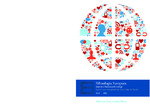Ethnologia Europaea (Vol. 42-2)
| dc.contributor.author | Karen Körber, | |
| dc.contributor.author | Ina Merkel, | |
| dc.date.accessioned | 2016-06-13 00:00:00 | |
| dc.date.accessioned | 2020-04-01T14:16:34Z | |
| dc.date.available | 2020-04-01T14:16:34Z | |
| dc.date.issued | 2012 | |
| dc.identifier | 610152 | |
| dc.identifier | OCN: 1030821123 | en_US |
| dc.identifier.issn | 1604-3030 | |
| dc.identifier.uri | http://library.oapen.org/handle/20.500.12657/32682 | |
| dc.description.abstract | Special issue: Though a seemingly stable concept in ethnological work, “family” as a lived reality took and takes on innumerable forms shaped by economic pressures, mobility and attendant social transformations, and biotechnical interventions. The case studies in this special issue focus on the ways in which social actors seek to concretize as well as control what family could or should be. While (bio-)technological innovation proves vital to fulfill traditional imaginaries of a nuclear family, communication technology is a key to keep transnationally situated families in contact. Still, transnational work opportunities conflict with traditional imaginaries of the wholesome families and impact particularly women seeking to cross both borders and established family norms. Popular genealogy as a hobby and passion uncovers evidence that counters established narratives: instead of long-term sedentary family lineages, evidence of migration muddies the waters. Family metaphor, finally, serves, in one of the case studies, as vocabulary to materialize imaginary kinship ties among nuns. The five case studies are complemented by four commentaries, exploring paths along which these themes can be developed further. | |
| dc.language | Undetermined[und] | |
| dc.relation.ispartofseries | Ethnologia Europaea | |
| dc.subject.classification | thema EDItEUR::J Society and Social Sciences::JH Sociology and anthropology::JHM Anthropology | en_US |
| dc.subject.other | familiestudier | |
| dc.subject.other | europa | |
| dc.subject.other | feminisme | |
| dc.subject.other | polen | |
| dc.subject.other | catholicism | |
| dc.subject.other | archives | |
| dc.subject.other | monasticism | |
| dc.subject.other | transnationalism | |
| dc.subject.other | trafficking | |
| dc.subject.other | transnationalisme | |
| dc.subject.other | poland | |
| dc.subject.other | østrig | |
| dc.subject.other | communication technologies | |
| dc.subject.other | kommunikationsteknologi | |
| dc.subject.other | mobilitet | |
| dc.subject.other | 21. årh. | |
| dc.subject.other | genealogi | |
| dc.subject.other | reproduktionsteknologi | |
| dc.subject.other | klostervæsen | |
| dc.subject.other | arkiver | |
| dc.subject.other | antropologi og etnologi | |
| dc.subject.other | family, studies of the | |
| dc.subject.other | mobility | |
| dc.subject.other | english | |
| dc.subject.other | anthropology and ethnology | |
| dc.subject.other | katholicisme | |
| dc.subject.other | køn | |
| dc.subject.other | feminism | |
| dc.subject.other | gender | |
| dc.subject.other | interviews | |
| dc.subject.other | migration | |
| dc.subject.other | austria | |
| dc.subject.other | 21th century | |
| dc.subject.other | reproductive technology | |
| dc.subject.other | genealogy | |
| dc.subject.other | europe | |
| dc.subject.other | engelsk | |
| dc.title | Ethnologia Europaea (Vol. 42-2) | |
| dc.type | book | |
| oapen.identifier.doi | 10.26530/OAPEN_610152 | |
| oapen.relation.isPublishedBy | bf3aad86-19af-41e9-9504-d166b1caff10 | |
| oapen.relation.isbn | 9788763540445 | |
| oapen.series.number | 2 | |
| oapen.pages | 114 | |
| oapen.identifier.ocn | 1030821123 |

